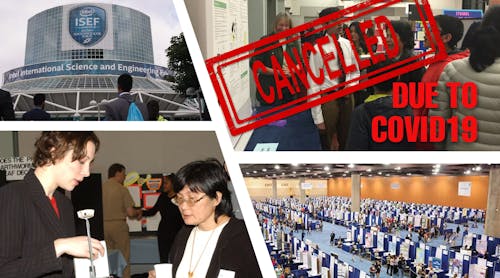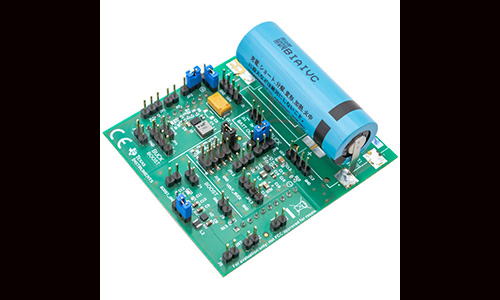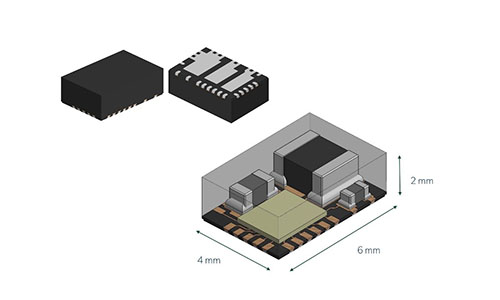This article is part of theProfessional Advancement系列:Annual Salary Survey
As the world collapsed under the strain of coronavirus last year, many companies delayed raises, canceled bonuses, and paused hiring for electrical engineers to reduce costs. Now they are starting to make up for all the belt-tightening.
雇主们增加工资和提高招聘for electrical engineers as the economy roars back from the worst of the pandemic, according to the results of the latest annual survey fromElectronic Designand Endeavor Business Media's Design Engineering Group. As employers grapple with a skills shortage, many are boosting bonuses or other perks to entice engineers from other jobs or hold on to the ones they have.
去年,工程师通过大多数大多数人的流行效果更好。与大量员工不同,大多数工程师都可以远程工作。尽管他们继续在平衡紧密的截止日期,持续教育和其他挑战方面挣扎,但他们在大多数情况下繁荣发展。对于超过58%的受访者,他们的工资并未直接受到大流行造成的经济动荡的影响。
But electrical engineers were not completely unscathed. The economic uncertainty unleashed by the virus pressured wages for many engineers, reversing some of the gains they enjoyed over the last decade or so. Last year, many engineers polled byElectronic Designsaid that, while their employers were keeping raises, bonuses, and a wide range of other perks in place, the wages gains were significantly weaker than usual.
Now companies seem to be picking up from where they left off. Around 60% of respondents say they will see their compensation rise in 2021, a stark improvement from the 42% of engineers who saw raises in 2020.
Around 650 engineers responded to the survey, volunteering to share details about their salaries, bonuses, and other sources of compensation withElectronic Design,Evaluation Engineering, andMicrowaves & RF。工程师表示,由于工作丰富,薪水正在上升,并且公司争夺人才,因此他们获得了更强的手。数量微不足道的工程师说,他们在2021年输掉了加薪或奖金。
但是他们对自己的前景保持乐观。受到高技能工程师的需求的鼓舞,约有70%的人认为工程薪水的潜力至少与流行前一样有利。
Several factors impact how engineers are compensated, including education, experience, title, seniority, age, location, and the status of the broader economy. But the survey results reveal that electrical and electronics engineers have very high-paying jobs. Engineers say that they will have a median base salary of $100,000 to $124,999 in 2021. Also, 58.5% report a median base salary in the range of $100,000 to $199,999.
Many employers plan to pay out bonuses, supplementing engineers' salaries with a median bonus of $1,000 to $1,999. Around 35% of respondents say they are in store for $5,000 or more in bonus pay this year.
At the top of the pay scale, engineers in management and executive roles not only have higher salaries, but they also earn thousands of dollars more in stocks and through employer-led share-matching programs. In contrast, rank-and-file engineers only get bonus pay and other perks on top of their base salaries. Only 30% say stocks are part of their compensation package, and around 12% are counting on $10,000-plus in stock awards in 2021.
大约14.5%的人说,薪酬率将在2021年增长6%以上,大约是去年百分比的两倍,约有30%的受访者透露他们的薪酬增加了1%至3%。根据数据,约有16%的工程师表示,他们将在2021年看到薪酬提高4%至6%,这表明,随着经济的持续反弹,电子公司正在增加工程师的薪酬。
Only around 10% say they expect a pay reduction in 2021—a significant improvement from the 20% who last year said wages would contract due to delayed bonuses, pay cuts, or other cost-saving measures by their employers.
Around 30% say they are not getting raises or seeing pay cuts this year, whether because of economic pressures, business challenges, or other factors, such as older engineers reaching the top of their pay range. But at a time of rapidly rising inflation, those paychecks may not go as far as they used to.
More than 60% of respondents say their employer sufficiently compensates them for their work, and 37% feel that their compensation is as competitive as other firms pay engineers with the same job.
另有19%的人报告说,他们的补偿可能比其他雇主的同龄人更好,而29%的人说他们的工资“有些”比其他人在2021年愿意支付的竞争力低。
At the same time, given the grind of electrical and electronics engineering, others feel that these wage gains are falling short of what they should be. Many engineers grappling with long hours, tight deadlines, and the challenges of continuing education worry that their salaries are out of step with what they bring to their job. Among engineers who claim to be under-compensated, most feel entitled to a raise of 10% to 25%.
While many engineers feel as though they deserve to be making more money, around 90% say they would recommend engineering as a career with—all things considered—a promising future and competitive pay.
Only 30% of respondents have debated whether to leave engineering permanently or take a detour into another industry. Many workers report feeling burned out by the unrelenting demands of the job and want to pursue a career with a better work-life balance. Others are seeking new challenges to shake up their work situation. Among engineers that have considered leaving, approximately 31% hope to make more money.
As the economy recovers from last year's pandemic-induced slump, employees are quitting their jobs at a record clip this year. The flood of departures is exacerbating a skills shortage in a wide range of industries, forcing companies to pay more to stand out and lure new employees. The mass resignations mark a sharp turn from last year, when workers craved stability as the virus spread, leaving economic turmoil in its wake.
但是,目前尚不清楚短缺是专门负责使电子行业公司更愿意提高工资或阻止其冻结工资增长或延迟奖金的原因。
The struggle to find engineering talent predates the pandemic, and it could have to do with the types of jobs engineers are comfortable taking than it does with a worker shortage. Even so, high-end engineering skills continue to be coveted: around 54% of respondents to last year's salary survey said their companies were having hiring troubles. Now? 67% say they are struggling to locate qualified candidates for open positions.
While some industries are churning workers more than others, the number of workers quitting may help explain why so many employers are struggling to plug holes in their engineering departments. More than 70% of respondents feel that there is a shortage of skilled engineers. Nevertheless, companies plan to keep hiring new workers, with 42% saying that they work for companies looking to hire more engineers in 2021.
Engineers are also keeping the door open to changing jobs. Many say that moving to a management role or changing jobs are the only ways to guarantee salary growth in engineering. Around 11% are seeking out a new job, while 31% say that, while they are not actively looking to switch, they would follow up if personally contacted with a job. Another 29% say they would follow up if they heard about a promising opportunity.
Around 29% of engineers are staying put and have no plans to start a new job in the foreseeable future.
The survey signals that while some engineers are walking out the door and others are eyeing open positions, most are staying where they are, possibly in part due to the ongoing uncertainty around the virus and the stability of their current jobs. Only 7% of engineers changed jobs within the last year, and among them, 13% were promoted to a new position with their current employer, while 23% left to pursue another opportunity.
换工作的工程师中,约有15%的工程师表示他们失去了一份工作后降落在新雇主。
鉴于侦察和招聘工程才能的挑战,许多公司正试图坚持他们已经拥有的工程。超过60%的受访者表示,与去年相比,今年的雇主至少专注于雇员保留。在短期内,人才短缺可能会使工程师更多的议价能力来谈判加薪或晋升,从而避免换工作。
Employers are increasing non-wage compensation and other perks to remain on their engineers' good side. A number are paying for continuing education, as mounting competition for skilled engineers underscores the need to nurture new skills internally. While companies suspended travel because of lockdowns last year, engineers say some are reopening their wallets to pay for travel to industry conferences or training courses.
Covering the cost of healthcare continues to be one of the top priorities for employers, respondents said.
Engineers have long struggled with feeling that employers look at them as interchangeable assets. But the current engineer shortage could help bring about change long-term—and possibly better pay in the process.
Read more articles in theProfessional Advancement系列:Annual Salary Survey

















